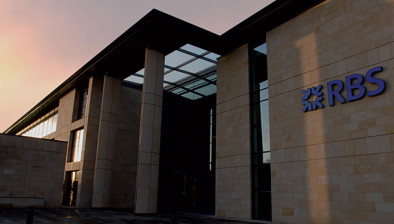RBS: Scottish private sector downturn continued through June as new orders dropped
Private sector activity in Scotland continued to decline significantly during June as firms reported a further drop in new orders throughout June, according to the latest Royal Bank of Scotland PMI.

Malcolm Buchanan, chair, Scotland Board, RBS
Private sector firms in Scotland reported a further reduction in total new orders during June, extending the current sequence of contraction to four months. According to panellists, client demand remained muted amid the COVID-19 pandemic.
The PMI registered 37.1 in June to signal a much softer rate contraction when compared to May’s figure of 21.1, but a marked drop nonetheless.
The respective seasonally adjusted index registered a record rise of 17 points on the month, however, to signal a notably softer rate of decline and indicate that the most severe phase of disruption had passed. That said, across the 12 monitored UK areas Scotland recorded the quickest decline.
The Future Output Index remained above the 50.0 mark for the second month in a row during June, to signal overall confidence at Scottish private sector firms with regards to activity over the year ahead.
Moreover, the level of positive sentiment improved notably, with anecdotal evidence linking confidence to looser lockdown restrictions and hopes of an economic recovery once the pandemic is under control. Sentiment remained slightly subdued in the context of historical data, however.
Private sector firms in Scotland continued to cut workforces at a significant rate in June, amid reports of further redundancies and lay-offs as a result of the coronavirus pandemic, alongside frequent mentions of the government furlough scheme. The rate of job shedding was the softest for three months, however.
Workforce numbers also dropped further at the UK level during June. The rate of reduction at the UK level was slightly softer than in Scotland.
June data highlighted further evidence of spare capacity in the Scottish private sector. The level of outstanding business fell again, as has been the case in 20 of the past 21 months. The rate of backlog depletion was the softest for three months, although it was still quicker than the series pre-coronavirus record and marked.
At the sector level, the reduction in overall workloads was broad-based in June. Services firms reported a notably sharper reduction than manufacturers, although both segments saw the rate of decline ease from May.
For the first time since March, private sector firms in Scotland recorded a rise in cost burdens during June. Higher prices at suppliers, greater raw material costs and the added expense of personal protective equipment (PPE) as a result of the coronavirus pandemic were the main drivers of inflation, according to respondents.
The rate of increase was only slight, however. The rate of input price inflation in Scotland broadly matched that at the UK level during June.
As has been the case in each of the past four months, average prices charged by Scottish private sector firms declined during June. According to panellists, the latest fall was the result of further discounting efforts.
The rate of decline was the softest in the aforementioned sequence, but still solid. At the sector level, the overall drop was driven by the services sector, where charges fell for the fourth month running. Meanwhile, selling prices at manufacturers increased.
Malcolm Buchanan, chair, Scotland Board, Royal Bank of Scotland, said: “Business activity across the Scottish private sector continued to decline markedly during June, with total new orders also falling sharply again. That said, the rates of decline eased significantly, with both indices recording record month-on-month rises from May, as looser restrictions allowed parts of the economy to restart.
“Scottish services firms were again worse-affected, with the reductions in both activity and new orders notably faster than those seen for their goods-producing counterparts. With both sectors struggling, private sector employment dropped markedly again amid reports of redundancies and lay-offs.
“The 12-month outlook for activity improved for the second month running in June, with the level of positive sentiment approaching the series average. Nonetheless, with client demand stifled, the short-term outlook for the Scottish private sector remains challenging.”
- Read all of our articles relating to COVID-19 here.







